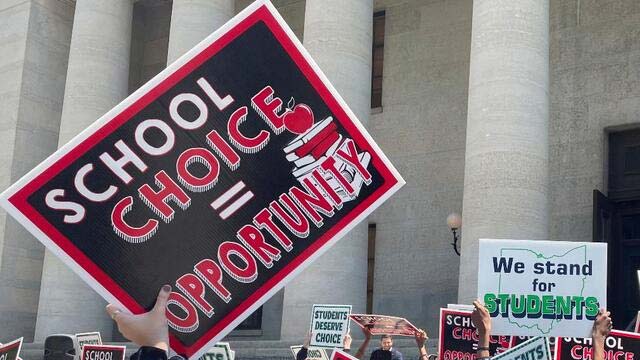
Republicans at the national level are preparing to embrace universal school choice in their upcoming convention platform. This policy aims to grant parents unprecedented autonomy in selecting their children’s schools, a culmination of decades of advocating for educational freedom. However, critics view it as a strategy to undermine public education.
The concept encompasses various interpretations, from abolishing school boundaries to enabling open enrollment and allowing parents to tailor their child’s curriculum. Education experts, spanning political perspectives, interpret the GOP platform as endorsing approaches seen in states like West Virginia and Ohio. These states provide taxpayer-funded vouchers that can be used at any public or private school, irrespective of income.
Lisa B. Nelson, CEO of the American Legislative Exchange Council, emphasized the platform’s focus on parental choice: This is about your money, your children, and your choice for their education. However, the platform’s ambition to make school choice universal raises questions, especially alongside proposals to eliminate the U.S. Department of Education and return policy-making authority to the states.
The platform underscores the Republican belief in empowering families to choose the best education for their children. Nevertheless, implementation challenges remain, including funding allocation and eligibility criteria. State programs supporting school vouchers have faced legal and logistical hurdles, expanding from serving low-income students to encompassing a broader range of schools.
Opponents argue that such expansive programs drain resources from public schools, which educate the majority of American students, and benefit more affluent families opting for private or religious schools. They point to legal battles in states like Ohio, where the universal application of voucher programs has sparked significant opposition.
Beyond vouchers, the GOP platform advocates for equal treatment of homeschooling families and addresses concerns about political indoctrination in schools. Critics, including education unions, view these proposals as detrimental to public education, democracy, and societal cohesion.
While Republican initiatives dominate the discourse on school choice, Democrats in several states have also supported expanding educational options for families in poverty or trapped in failing schools. This bipartisan movement reflects ongoing debates over the future of American education policy.












